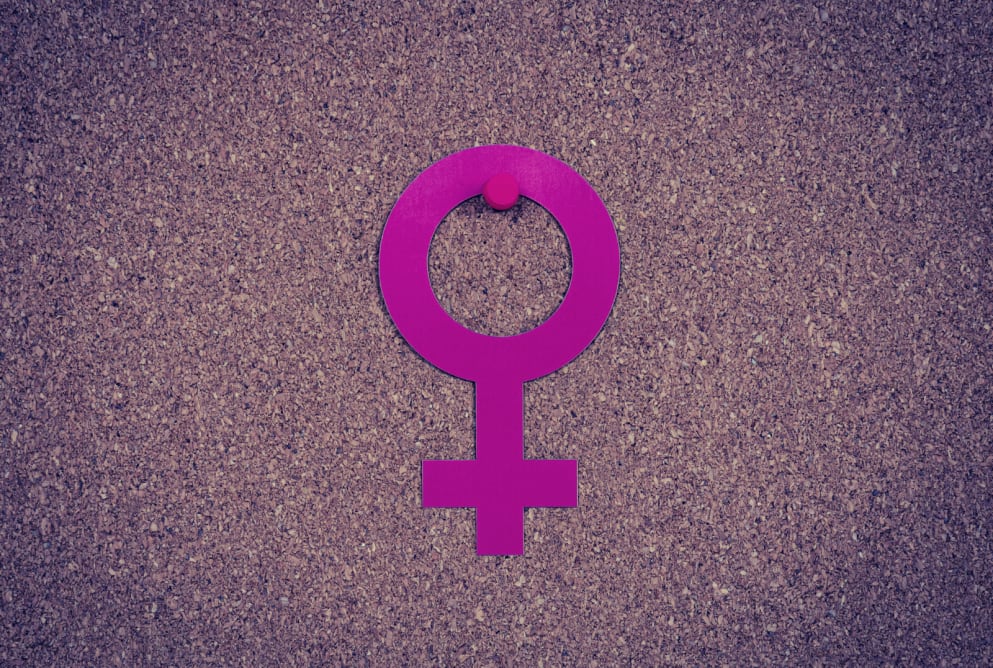Homelessness does not discriminate - we never tire of saying it. And as the cost of living crisis continues to affect millions across the country, more people than ever are likely to be at risk. However, whilst homelessness can happen to anyone, at any time, that doesn’t mean that the experience is the same for everyone. Each person will have their own story and their own set of unique challenges.
As we celebrate International Women’s Day, we’re taking a look at why it’s important to have a gendered approach to housing services and outreach, and how Simon on the Streets works hard to support the needs of the women who are dealing with it.
Why are the needs of women often different to men when it comes to homelessness?
It would be fair to say that women’s experiences of housing services when facing homelessness haven’t always been easy or positive. Despite the very unique challenges women face, housing services haven’t always offered a response that takes all of this into account. Be it a lack of female-only refuge spaces, the inability to meet complex needs, or government failure to address the numerous issues such as poverty and welfare cuts that leave women at risk, there’s no doubt that there’s still a lot of work to do.
Because of these factors, for some women, seeking the support they need whilst living in fear is often extremely traumatising. And this is one of the reasons why we struggle to know the true extent of the problem, with many women slipping through the net as a result of hidden homelessness.
But why are the needs of women different from men? What specific challenges do they face?
Domestic abuse and violence
Whilst every woman facing homelessness has her own unique set of circumstances, the one thing an overwhelming number of them have in common, is domestic violence.
Tragically, the statistics speak for themselves. It’s estimated that anywhere between 44 - 90% of women who are homeless have experienced violence, either during their experience or prior to it. In fact, in a report by SafeLives, 32% of women said domestic violence contributed to their homelessness, after fleeing unsafe or dangerous relationships. For those women facing long-term homelessness, the situation is even more devastating, as this group almost universally experiences domestic abuse and wider forms of violence.
Ultimately, there’s a very clear link between domestic violence, women and homelessness, and housing services must be able to recognise this in order to provide the appropriate and tailored approach that’s desperately needed.
Mental health and substance abuse
The further link between domestic abuse and how it negatively impacts mental health is something we’ve talked about a lot. And the issue is twofold. Women who are victims of domestic abuse are far more likely to suffer ill mental health, whilst those living with mental health problems are more likely to be victims of domestic abuse. It's a cycle that's very difficult to break.
Mental health conditions such as PTSD, depression and anxiety can lead to other concerns too. For example, women often turn to alcohol and drugs in order to cope with trauma, leading to substance abuse and dependency issues.
Additional challenges and female dignity
In addition to the crippling impact of domestic violence, substance abuse and mental ill health, women face a number of practical challenges when it comes to life on the streets.
Managing their periods, preserving gynaecological health, pregnancy and contraception, supporting their children, as well as dealing with the removal of children from their care - these are all potential additional challenges that women find themselves having to overcome.
Our approach to outreach
Here at Simon on the Streets, we know that trust is the key when it comes to helping those facing homelessness. By listening to each person’s specific wants and needs, including their own personal goals, we can build a relationship, and provide them with the right emotional and physical support, and advocate on their behalf about the things they need and deserve in order to turn their lives around.
It’s really simple: we don’t use a ‘one-size fits all’ approach, and we have very strong links with other available support services when it comes to the specific needs of women facing, or living, life on the streets.
At Simon on the Streets, we focus on always providing the right support to every person we help. Support that’s always specific to them and their needs. It’s the only way we can break the cycle of homelessness.
If you want to help us make a difference, get involved by signing up to one of our events or make a one-off donation. Every single piece of support matters, and can really help to make a difference.
